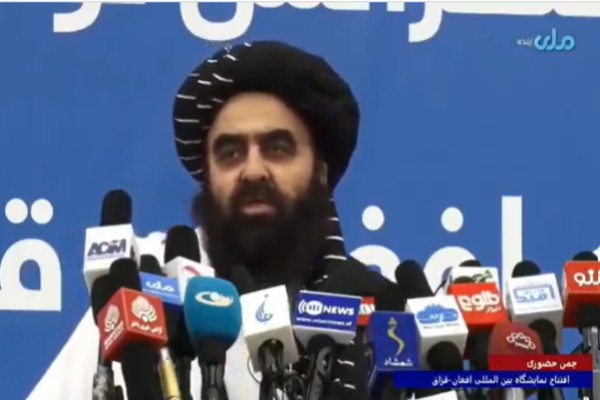
Is India incrementally moving towards formal recognition of the Taliban regime in Afghanistan? It would appear so.
While India has already upgraded its technical mission in Kabul to an embassy with a charge de affairs in place, StratNewsGlobal learns that an official being sent by the Taliban regime is expected to take over as charge de affairs at the Afghan embassy in Delhi. It could happen fairly soon.
This was reportedly among a clutch of decisions taken during the recent visit of Taliban acting foreign minister Amir Khan Muttaqi.
Currently, all work at the embassy is being handled by an official of the former Afghan regime, who will step aside when the new official arrives. Taliban representatives are already functioning from the Afghan consulates in Mumbai and Hyderabad.
However, that does not mean the Taliban flag will fly from any of these locations. The old Afghan black red and green flag will continue until India recognises the regime in Kabul.
How long could such recognition take? Currently, the Taliban is only recognised by Russia. China does not recognise the Taliban even though the Afghan embassy in Beijing is staffed by Taliban officials and the building flies the white flag of the emirate.
But a cross-section of academics and former diplomats StratNewsGlobal spoke to, indicated that it would not help if India was among a large number of countries recognising the regime.
India may have to do so earlier as the Taliban has been urging Delhi for some time. “The early bird catches the worm,” and being an early bird could help India consolidate its ties with the regime and expand its activities in the country.
Does recognition mean the consulates in the cities of Kandahar, Jalalabad, Mazar-e-Sharif and Herat will also open? That is not clear.
Security of its diplomatic personnel is India’s primary concern and while the Taliban has a grip over the country, the killing of minister for refugees Khalil Rahman Haqqani last December by a suicide bomber, revealed major chinks in the Taliban armour.
The sense is Pakistan has penetrated every section of Afghan society and the Inter-Services Intelligence (ISI) remains influential and active.There are reported to be a number of Pakistani intelligence operatives among the Afghan refugees Islamabad has been sending back. They are a threat to India and Indians.
Also important to note, the Jaish-e-Muhammad and the Lashkar-e-Tayyaba are present in Afghanistan and the latter, presumably at the behest of the ISI, is working with the Islamic State Khorasan Province (ISKP).
The ISKP is reported to be active in Nangarhar province bordering Pakistan and has long been regarded as the cat’s paw of the ISI.
That deepens India’s security concerns. What happens if there is an attack on the consulate in Kandahar or any other? Can Taliban claims of being able to provide adequate security be taken at face value?
What if embassy or consulate staff have to be evacuated at short notice? The Taliban regime may not have the resources or platforms to bring the Indians out. It was a different story when the “resource-rich” Americans were there.
For now, it would seem, India will concentrate its diplomatic and other efforts through the Kabul mission, seeking a low-profile but steady build-up of activities. That may not square with the Taliban which is anxious for India to speed up projects across the country since this helps ordinary Afghans.
But India has lost precious lives in Afghanistan in the past and caution is the watch-word.
Thirty eight years in journalism, widely travelled, history buff with a preference for Old Monk Rum. Current interest/focus spans China, Technology and Trade. Recent reads: Steven Colls Directorate S and Alexander Frater's Chasing the Monsoon. Netflix/Prime video junkie. Loves animal videos on Facebook. Reluctant tweeter.




